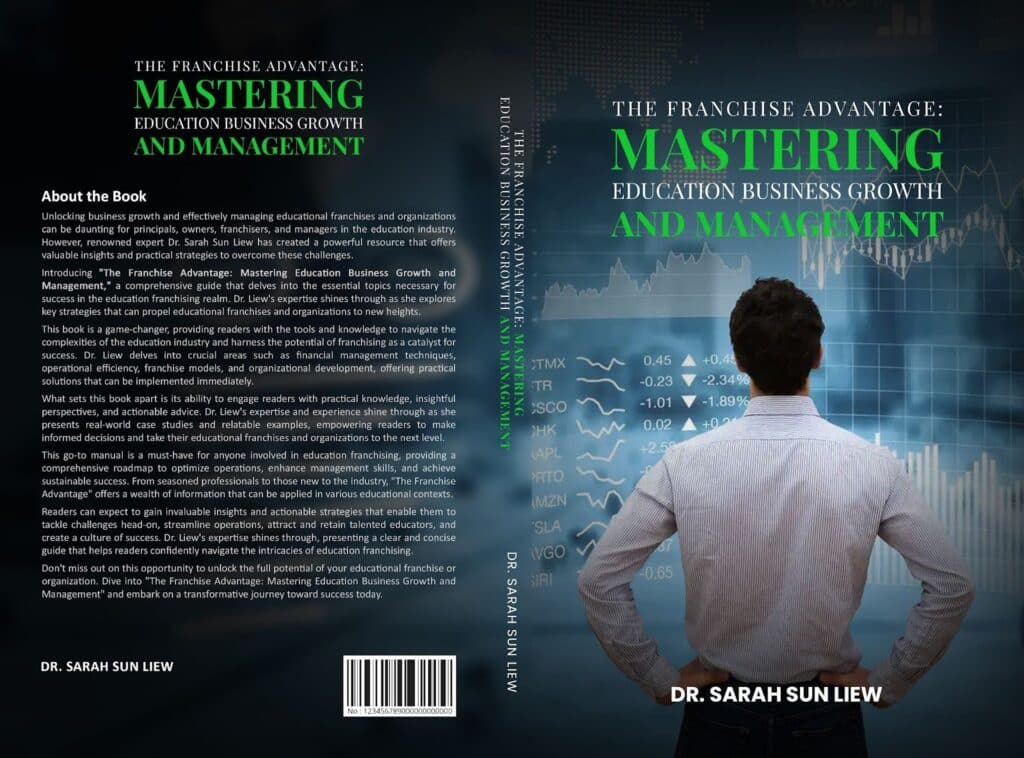The COVID-19 pandemic has transformed the education landscape, accelerating the shift to online learning and reshaping educational institutions worldwide. In The Ultimate Guide to Educational Franchising, Dr. Sarah Sun Liew explores how these changes have created new opportunities for educational franchises, highlighting their role in addressing the demand for flexible and innovative learning solutions. This article examines Dr. Liew’s insights into the post-pandemic educational environment, focusing on how educational franchises respond to evolving educational needs.
The Impact of the Pandemic on Education
The pandemic forced educational institutions globally to adopt remote learning, revealing both the strengths and limitations of traditional schooling. Schools had to adapt quickly to a digital format, emphasizing the need for scalable, flexible educational models that withstand changing circumstances. According to Dr. Liew, educational franchises are well-positioned to meet these needs due to their adaptability and personalized learning models. Unlike some traditional institutions, franchises may have the flexibility to implement new learning formats and methodologies.
Educational franchises can address certain limitations of traditional schools by providing specialized, flexible programs that meet individual student needs. Responding quickly to unforeseen challenges is crucial in a post-pandemic world with lingering uncertainty. Dr. Liew highlights in her book that the scalability of educational franchises enables them to cater to diverse learning needs, providing an alternative for students and parents seeking more customization in education.
Key Trends Shaping the Future of Education
Remote Learning as the New Norm
One notable change post-pandemic is the increased acceptance of remote learning. As schools reopen, students and parents have grown accustomed to the flexibility of online education. Dr. Liew discusses how educational franchises can leverage this trend by offering online courses, hybrid models, and blended learning environments. By offering both in-person and digital options, franchises can accommodate a variety of learning styles and preferences.
Franchises that invest in comprehensive online platforms—including interactive materials, live sessions, and self-paced modules—can reach students in remote or underserved areas. Dr. Liew suggests franchises embracing remote learning can cater to a generation valuing accessibility and digital engagement.
Increased Demand for Personalized Education
The pandemic has heightened the desire for more personalized education, with students and parents seeking learning experiences tailored to individual needs. Traditional schools may struggle to provide this level of customization, creating an opportunity for educational franchises to fill the gap. Dr. Liew discusses how franchises can use technology, like AI and data analytics, to create personalized learning paths that help students achieve better outcomes.
Dr. Liew’s book describes how personalized franchised education could enhance engagement and comprehension by aligning lessons with students’ strengths and pace. She encourages franchise owners to consider technologies that support this personalization, which can give their franchises a unique appeal.
The Rise of Educational Franchises
As some traditional educational institutions grapple with adapting to new demands, educational franchises have emerged as a flexible alternative. Dr. Liew points out that franchises offer programs that address the diverse needs of today’s learners, expanding the range of subjects and skills accessible to students, from STEM to arts and leadership development.
By focusing on specialized programs and extracurricular options, franchises can meet the demand for education beyond standard academics. Dr. Liew believes franchises have the potential to offer tailored instruction, which could address parents’ and students’ needs for more specialized education.
Challenges and Opportunities in the Post-Pandemic Market
The post-pandemic environment presents both opportunities and challenges for educational franchises. The rapid pace of technology adoption and changing expectations for personalized learning mean that franchise owners must stay agile. Maintaining a balance between quality and scalability is essential, especially as franchises grow to meet demand.
Dr. Liew advises franchise owners to uphold educational standards to retain credibility. Franchises must invest in training, curriculum development, and technology infrastructure to ensure a consistent learning experience. Clear quality benchmarks, regular program assessments, and unique branding are suggested strategies for staying competitive.
Conclusion

Educational franchises appear poised to be increasingly important in the post-pandemic education landscape. By meeting demands for flexibility and personalization, they offer parents and students more options for tailored educational experiences. Dr. Sarah Sun Liew’s book guides franchise owners looking to navigate the challenges and opportunities of this new landscape, offering insights into trends such as remote learning and personalized education.
This article aims to provide an objective overview of these trends and their potential impact on educational franchises. As the education sector evolves, franchises prioritizing adaptability and specialization may be well-positioned to meet diverse learning needs in a dynamic, competitive environment.
For those interested in learning more about Dr. Sarah Sun Liew’s strategies for success in educational franchising:
- Visit her author profile: wikitia.com/wiki/Dr._Sarah_Sun_Liew
- Contact: (424) 343-7025 or (424) 777-6461
- Email: Mgroupbh7@gmail.com
Published by: Nelly Chavez





